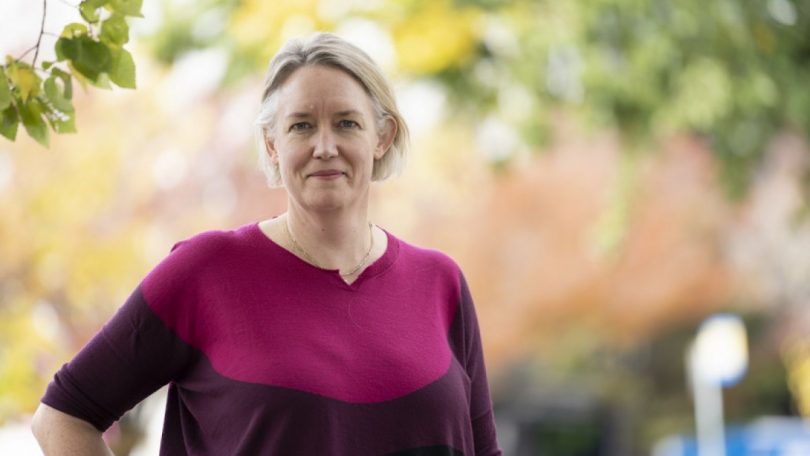
Canberra-based cardiologist Dr Arnagretta Hunter has called for governments to tackle the effects of bushfire smoke. Photo: Supplied.
Experts claim governments must do more to tackle climate change and fight increasing health risks from bushfire smoke.
The Global Climate and Health Alliance has released an international report, titled ‘The Limits of Liveability’, which states governments must prepare public health systems to tackle the effects of air pollution from bushfire smoke.
The report found bushfire smoke has a range of adverse health effects, especially in unborn babies, children, elderly people and people with existing medical conditions.
During the 2019-2020 Black Summer bushfires, smoke caused 429 premature deaths, 3320 hospital admissions for cardiovascular or respiratory conditions, and 1523 emergency asthma presentations. The smoke-related health costs during this period was $1.95 billion.
Canberra-based cardiologist Dr Arnagretta Hunter was living and working in Canberra when smoke from the bushfires started to blow across the city in November 2019, leading to periods of hazardous air quality and days where the sun could not be seen, which gave a “real sense of an apocalypse”.
“The health effects of bushfire smoke during the Black Summer are evident in published data, and in first-hand experience of Canberra’s thick smoke,” she said.
“You couldn’t go outside, you couldn’t breathe the air, water supplies were disrupted, and plants and animals suffered and died.
“If this is what we experience regularly, we will wonder how we can possibly survive and thrive in this environment.”
Dr Hunter’s family was on the NSW Far South Coast during the 2019-2020 New Year’s period so she, like many Canberrans and coastal locals, has stories of evacuation and drama from the fires.
She worked at Canberra Hospital at the time and said a common problem occurred when people forced to flee their homes in a regional area due to the fires left their homes without their medications. Sometimes this led to hospitalisations.
“Bushfire smoke affected all of us, from minor eye irritations, coughs and shortness of breath, to infections, hospitalisations and some people who died due to health impacts of the smoke,” said Dr Hunter.
“Most people had a cough, and most people were a bit short of breath.
“We simply can’t afford to go through another fire season without a public health plan that addresses the impact of smoke.”
Dr Hunter said while Australia has had many experiences of bushfires, and she lived through Ash Wednesday and Black Saturday, the nation had never experienced bushfires like those during Black Summer.
Usually bushfire smoke lasted days, she said, but Black Summer featured months of intermittently hazardous air pollution.
“It’s really time for us to recognise that the health impacts of climate change are here now and are likely to pose a significant risk to our communities during the coming decades,” she said.
Dr Hunter said it is important to recognise climate change is a global problem and there were similar fires in other parts of the world, such as the west coast of the USA, so health impacts from climate change will also be seen in other nations.
“The long-term impacts of weeks to months of exposure to bushfire smoke are uncertain, however there are many issues that should be investigated, including an increasing risk of cancers, lung and cardiovascular disease,” she said.
Climate and Health Alliance executive director Fiona Armstrong said climate change is a health emergency.
“Bushfires are now more intense, frequent and dangerous in Australia, driven by climate change and associated droughts and heatwaves,” she said.
“Australia’s climate policies are far from aligned with the scientific evidence, and the health of Australians is suffering.”
The report’s lead author, Dr Frances MacGuire, said health services in vulnerable countries must plan for longer and more intense fire and smoke events, including heat and smoke-proofing new hospital buildings and ensuring supply chain flexibility to match increased demand for treatments such as asthma inhalers.
The Global Climate and Health Alliance is the leading global convenor of health professional and health civil society organisations addressing climate change.
To read ‘The Limits of Liveability’ report, click here.








